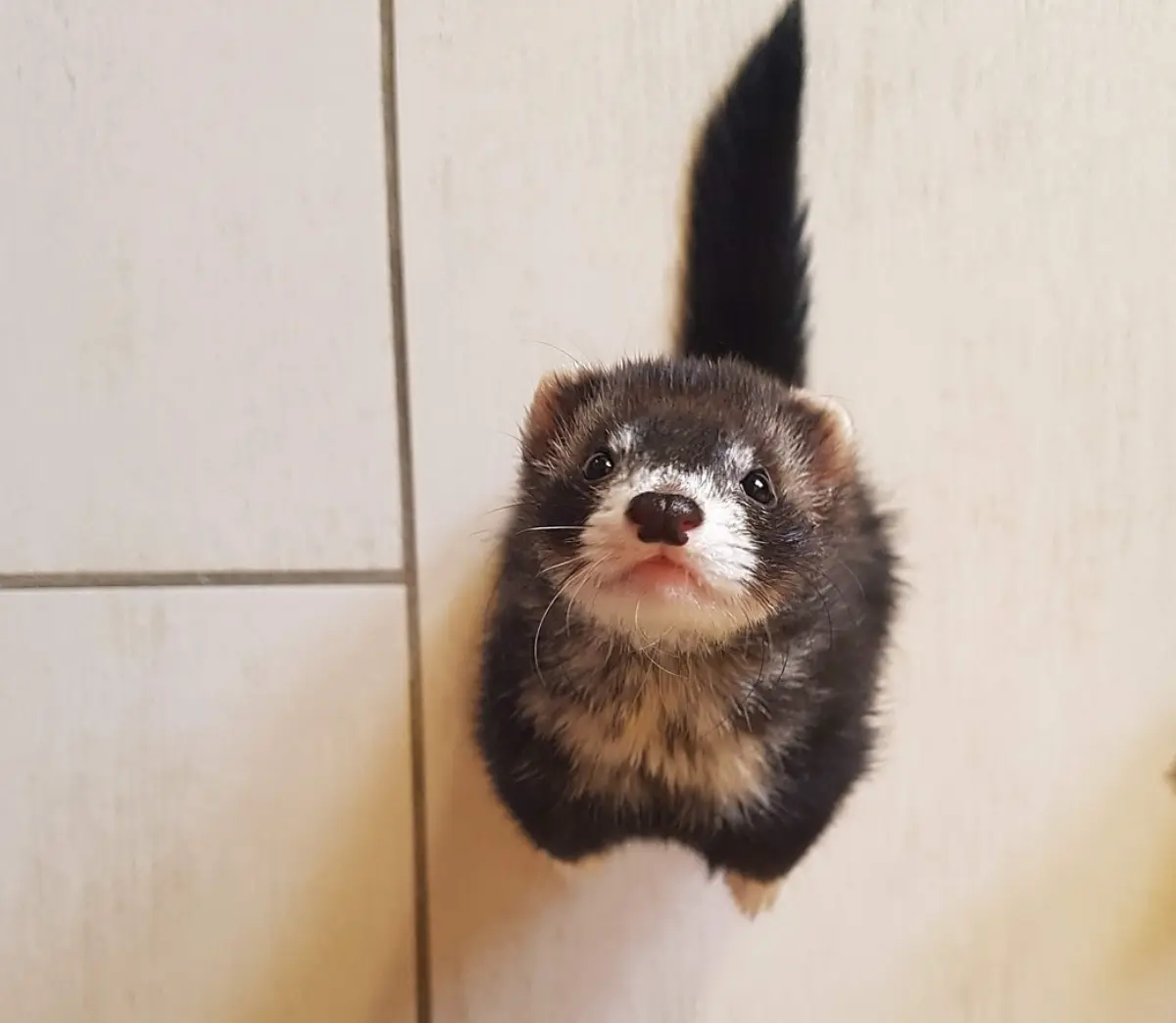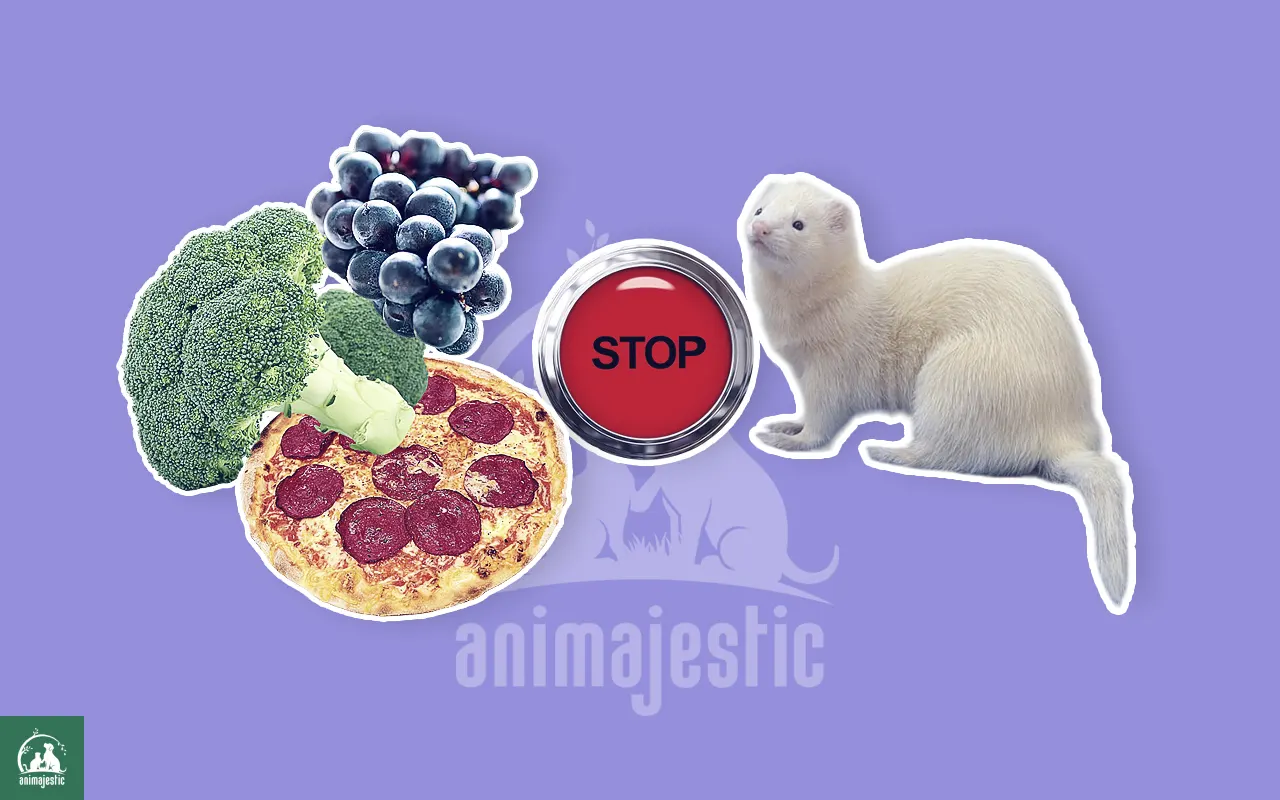Ferrets, with their playful demeanor and curious nature, make delightful companions. However, they are not your typical household pet as they have dietary requirements distinct from other animals. As born carnivores, their diet should be primarily meat-based, fortified with essential nutrients to maintain their health and vitality.
Here, we aim to provide an exhaustive, interactive, dietetic guide on foods that ferrets should not eat. Despite their notorious reputation for being sneaky and persistent in stealing a bite of your dinner, many human foods are inappropriate and can be harmful to them.
Fruits and Vegetables: A Perilous Choice
Though fruits and vegetables are healthy for humans. Contrary to common belief, they are inappropriate for ferrets. Ferrets have a high metabolic rate, require frequent meals, and rely on a diet concentrated on protein and fats.
They lack the requisite digestive enzymes to break down plant material, meaning fruit and vegetable consumption can potentially cause gastrointestinal blockages. Here are a few examples:
- Sweet fruit like apples and bananas: These fruits contain a large amount of fructose (fruit sugar), which is challenging for a ferret’s system to break down.
- Grapes and raisins: They have been known to cause kidney failure in pets.
- Cruciferous vegetables: Broccoli, cabbage, and Brussels sprouts can cause gas and potentially deadly bloating in ferrets.

The Dairy, Grains, and Carbohydrates Risks
Much like many animal species, ferrets are naturally lactose intolerant as they lack the enzyme to break down lactose in many dairy products which can lead to diarrhoea and digestive discomfort.
Ferrets should avoid grains and other high-carb foods as their digestive systems are not meant to process such and can lead to obesity, insulinoma, dental diseases, and shorter life spans. Also note that unhealthy carbs can be found in bread, cereals, pasta, rice, and baked goods.
Rawhide Chews, Cooked Bones, and Dog Food
While rawhide chews and cooked bones may seem like a delicious meal, they can create serious threats to your ferret’s health. Cooked bones are more prone to splintering and could cause fatal damages like obstruction or lacerations in your ferret’s esophagus or intestines.
Commercial dog food is also often unsuitable for ferrets as it lacks the necessary high level of protein and taurine nutrients that ferrets need, and contains an excess of carbohydrates and fiber.
Sweet, Salty, Fatty Foods, and Caffeine
A sliver of pizza, a handful of chips, or a bite of a candy bar might satisfy a human’s late-night craving, but when it comes to your dear ferret, they’re potentially deadly. Foods high in sugar, salt, or unhealthy fats like fast foods, processed foods, and candy, can cause serious health issues including heart disease and diabetes.
Letting them consume caffeine-filled goodies, be it chocolate or coffee, can result in caffeine toxicity and can cause diarrhoea, restlessness, rapid breathing, heart palpitations, muscle tremors, and in severe cases seizures or death.
Take away
Maintaining a proper diet for your ferret plays a crucial role in ensuring an energetic and healthy life for them. A high-quality, commercial ferret diet constitutes the safest option, and remember, no matter how adorable their pleading eyes may be, resist the temptation to share your snacks!
Schedule a consultation time with a professional vet before making any significant changes to your pet’s diet. Adhering to dietary restrictions is a small price to pay for the companionship and joy they offer compared to the risk of losing them. Remember, Your ferret’s health is in your hands.
